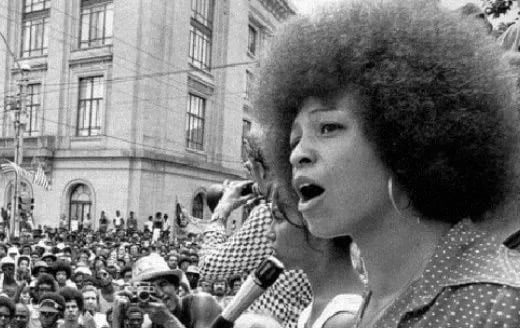Civil Rights Activist Assata Shakur Dies in Cuba at 78
NEWS & HEADLINESFEATURED ARTICLES
9/30/20253 min read


Civil Rights Activist Assata Shakur Dies in Cuba at 78
By Maurice Woodson
Assata Shakur, the revolutionary activist, writer, and godmother of Tupac Shakur, has died in Cuba at the age of 78. Her life and legacy remain among the most debated and politicized in modern U.S. history.
A Revolutionary in a Tumultuous Era
Born JoAnne Chesimard in Queens, New York, in 1947, Shakur became politically active during the late 1960s. She joined the Black Panther Party, then later the Black Liberation Army, aligning herself with organizations fighting systemic racism, state violence, and U.S. involvement in Vietnam.
Her activism placed her in the crosshairs of the FBI. Under the infamous COINTELPRO program, federal and state agencies carried out covert campaigns to surveil, disrupt, and neutralize Black leaders and liberation movements. Shakur, in particular, became a high-profile target through the CHESROB investigation, a wide-ranging effort to tie Black activists to violent crimes.
The 1973 Turnpike Shootout
On May 2, 1973, Shakur’s life changed forever during what police described as a “routine” traffic stop on the New Jersey Turnpike. What began with a faulty taillight citation ended in bloodshed.
State trooper James Harper opened fire, striking Shakur twice. Her comrade Zayd Malik Shakur was killed—by Harper’s own admission—and trooper Werner Foerster also lost his life. Authorities blamed Assata for Foerster’s killing, even though testimony later revealed inconsistencies.
Trooper Harper testified that he never saw her with a weapon and that she was shot while holding her arms in the air. Still, Shakur was charged alongside Sundiata Acoli, another Black revolutionary captured later.
Conviction and Escape
In 1977, after years of legal battles, Shakur was convicted of first-degree murder and sentenced to life in prison plus 33 years. The trial raised serious questions of fairness: her jury was all white, she had been demonized in the media long before proceedings began, and her defense attorneys argued that her case reflected the racial and political tensions of the era more than the evidence itself.
In 1979, with the help of allies from the underground liberation movement, Shakur escaped from prison. After years of living underground, she surfaced in Cuba in 1984, where she was granted political asylum.
Branded a Fugitive, Treated as a Symbol
The U.S. government branded Shakur one of its most dangerous fugitives. In 2013, she became the first woman ever placed on the FBI’s Most Wanted Terrorists list, with a $2 million reward for her capture. Yet to many, she was not a terrorist but a political exile—an embodiment of resistance against state oppression.
A petition filed with the United Nations by the National Conference of Black Lawyers alleged that both the FBI and NYPD spread “widely circulated” accusations linking her to violent crimes, many of which ended in acquittals or dismissals. Across six separate cases, she was found guilty only once—the New Jersey trial.
Meanwhile, she was barred from speaking publicly. While law enforcement fed stories to the media daily, Shakur and Acoli were denied interviews, shaping a narrative where they were convicted in headlines long before verdicts were reached.
Life in Exile
In Cuba, Shakur lived a quieter life, writing her acclaimed autobiography Assata: An Autobiography and giving limited interviews that continued to inspire generations of activists. To her supporters, she became a living link between the Black freedom struggles of the 1960s and ongoing fights for justice.
Her bond with family also carried symbolic weight. As the godmother and step-aunt of rapper Tupac Shakur, she was seen as part of a lineage of cultural and political rebellion stretching across decades.
The Meaning of Assata Shakur
For nearly half a century, Assata Shakur stood at the intersection of controversy and conviction. To U.S. officials, she remained an unrepentant fugitive. To her supporters, she was a freedom fighter persecuted for refusing to bow to injustice.
Her death at 78 closes a chapter, but the questions her life raised—about race, justice, media bias, and the criminalization of dissent—remain as urgent today as they were when she first raised her fist against oppression.
Assata Shakur, remembered by some as America’s most wanted woman and by others as a symbol of survival, leaves behind a complicated but undeniable legacy.
